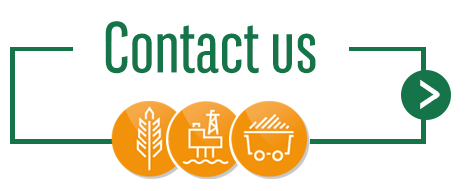
Finding out the potential of new technologies in Commodity Trade Finance
Commodity trading has remarkably changed in the past few years: banks became more regulated, trading companies consolidated… Bankers, merchants and producers alike are looking to reduce costs and to increase their efficiency.
As transparency increases, merchants are also rethinking their business model to add value. In response to these evolutions, some market participants have turned to new technologies, such as Blockchain, the Internet of Things or Big Data. Others look skeptically at these developments and are not yet convinced they could really have an impact.
New technologies would bring more efficiency
Operational risks would be reduced
The commodity business has traditionally been very paper-oriented. Companies and banks need to divert resources and time from their core activity to back offices who deal with these long processes. How can new technologies improve this situation? Most new technologies developed today -first and foremost the Blockchain technology-aim to resolve two issues: prevent frauds and reduce operational delays to almost zero. Operations would be done instantaneously instead of in several days or weeks, and they would be done by a single machine instead of having several people in each company checking and sending around the same documents.
How could a digital platform resolve this?
Some people in the industry have chosen to go further than to digitalize trade documents at a company’s level. They have imagined digital platforms to physically trade commodities, which would make the market more efficient and less costly. Overall, interviewees did not believe platforms could be a disruptive innovation in the commodities world. Platforms are considered as yet another way to digitalize the trading activity, but not to transform it, and digitalization is seen as an extra service that merchants will be able to offer to their clients.
Adaptation will be a key factor
Change will have to be consensual
However, part of the industry is not ready for this change. Several merchants we interviewed believed digitalization of commodity trading and trade finance will never happen. Their mindset was demonstrative of part of the industry’s unwillingness to change. Producers were mostly indifferent to it, as the mining industry does not yet have the pressure to change. Finally, bankers were usually the most enthusiastic about the potential benefits of new technologies in commodities trading. This seems fairly logical since most innovations will start by having an impact on the financing side of commodities trading, and so will directly impact banks. For all these reasons, there is not a consensus on when these technologies will be fully implemented in the market.
New technologies will enhance, not disrupt, commodity trading
It is probable that what will emerge first will not necessarily be the digitalization of the actual transaction of the trade, but rather the digitalization of all the post-trade lifecycle of commodities trading. Platforms and new technologies are not going to impact negatively those merchants who are able to provide all these services and go further than a simple trading business. These merchants are going to re-intermediate the platforms, which will become a tool for them to improve their service offer by making operations swifter and more secure. This article is a synthesis of a study carried on by PSL university students and BNP Paribas in Switzerland.
PSL University and BNP Paribas in Switzerland
The partnership between the university PSL and BNP Paribas in Switzerland builds on academic research, innovative methods (i.e. DKCP), teachers’ and students’ knowledge in two Paris Dauphine Masters (“Management de la Technologie et de l’Innovation ” and “212 Affaires Internationales”). Managed by the Swiss Development and Innovation team, it creates an environment that combines two worlds to answer the business lines’ needs in transformation and development, while giving students real world experience.
